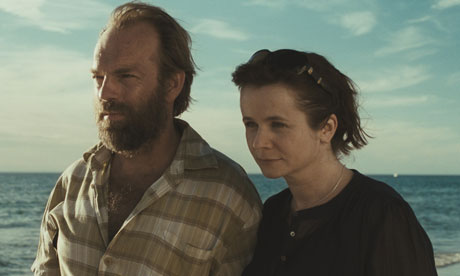
Oranges and Sunshine is a 2010 movie starring Emily Watson, Hugo Weaving and David Wenham. It tells the true life story of Margaret Humphreys, a down to earth and compassionate social worker in Nottingham, UK who slowly unravels the story of the "home children" - children who were taken into care and then deported to such countries as Australia and Canada.
The film starts when Margaret is asked by a woman to help her discover who she is. Margaret directs an adoption support group for adults in Nottingham and that is how the woman finds her. The woman explains to Margaret that she has memories of living in England when she was very young, and also has memories of being shipped along with many other children from the UK to Australia to live in children's homes. Margaret is doubtful about this explanation at first because she has never heard of this "scheme" of unaccompanied minors being shipped not to adoptive homes, but children's homes in Australia. Then, a regular woman in Margaret's adoption support group mentions that she too was also shipped to Australia with her brother (Hugo Weaving's character) after their mother died.
After gaining this information, Margaret begins to do research on birth records etc. of the original woman and discovers that her mother is still alive. The woman had been taken into care as a young child and when her mother returned to see her, she was informed that her daughter had been "adopted." Margaret then uses her own vacation time to go to Australia to find out of there were more adults who had been shipped to Australia as children. The response becomes overwhelming and it soon becomes Margaret's full time job, with the support of her employer, to try and reunite these lost Australian "home children" with their UK families.
What follows is a heart wrenching investigation as Margaret uncovers a lack of willingness to accept responsibility from the UK and Australian governments, and finds out about the sad experiences that many of these children had in the homes. They were given only one outfit to wear, were forced to do hard labour, could only attend school if they completed their work, and experienced physical and sexual abuse at the hands of the Congregation of the Christian Brothers who ran a home in Bindoon, Australia. The results of this treatment are devastating on these grown adults - they feel empty, worthless and alone. Margaret provides a comforting ear to their stories but the effect begins to take a toll on her. She is diagnosed with PTSD after her hair beings falling out, she is threatened by an intruder, and she wakes up in the middle of the night and cannot breathe.
A pivotal part in the movie comes near the end when Margaret sees firsthand the children's home in Bindoon. It is in a very isolated location, and therefore there is nowhere to run for these children to seek help. One of the former residents, Len (played by David Wenham) takes her inside whereby the Brothers are shocked at her presence. Margaret asks them as grown men, what should they be afraid of? After returning to the car, Margaret begins to weep and Len offers her water. He then offers up more information about himself as he says that one of the Brothers used to come for him at night. Thus explaining why he had been so prickly and untrusting of Margaret earlier.
To these "home children" Margaret becomes like a sister, listening to their stories and trying to gain information about the families they were separated from so many years ago. The movie begins to take place in the mid 1980's and many of these children were deported between the mid 1950s and 60s. Therefore, some of their mothers are alive and some are not. Margaret continues the search for truth on their behalf with the support of her husband Merv when others accuse her of lying. She also sacrifices much time away from her husband and children as she frequently travels to Australia to meet with these survivors. All in all, there were about 130,000 children deported and Margaret's work continues to this day.
Although this is an emotional movie it is highly recommended as it demonstrates the impact that once social worker can have on the lives of many!

No comments:
Post a Comment